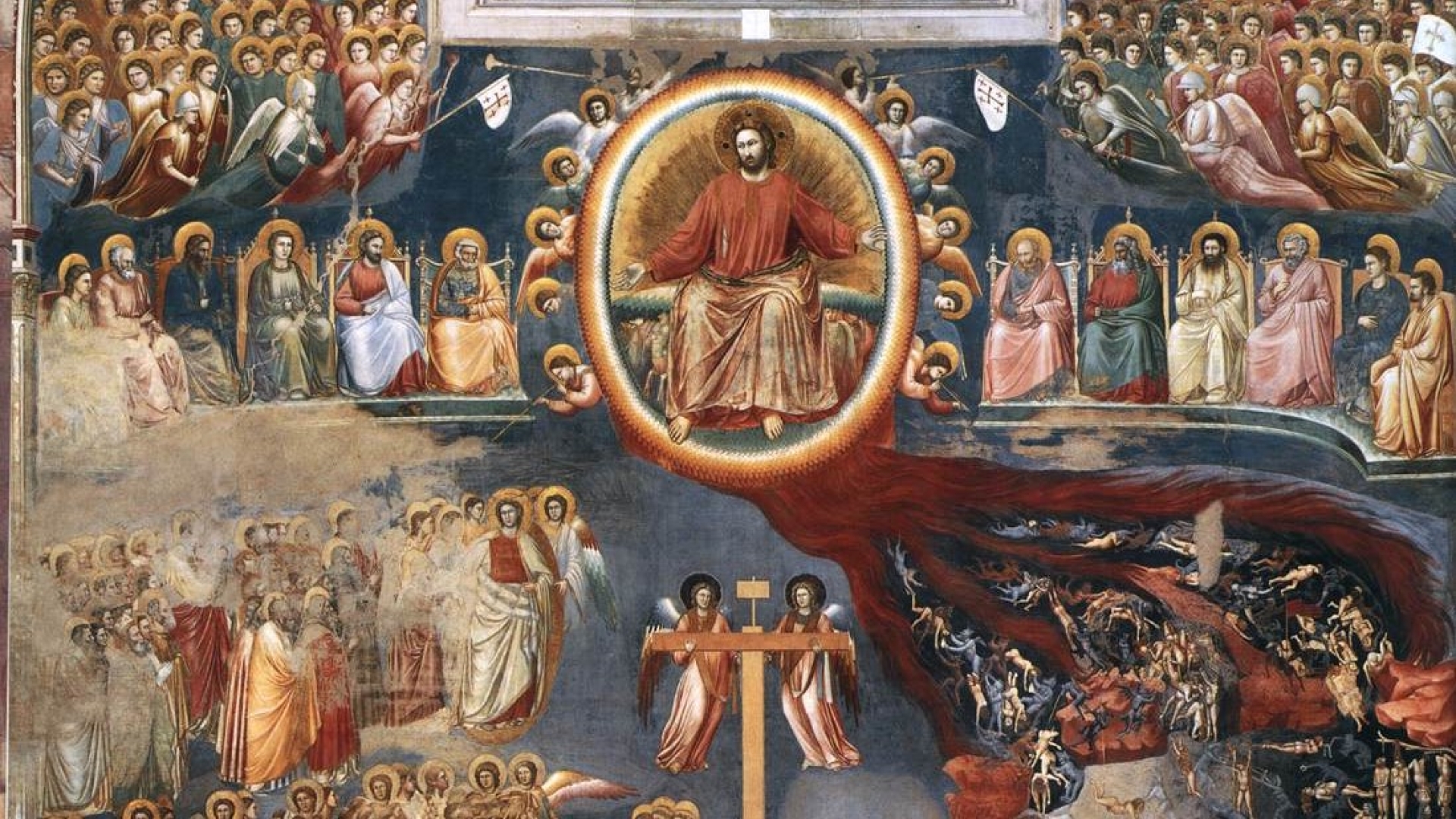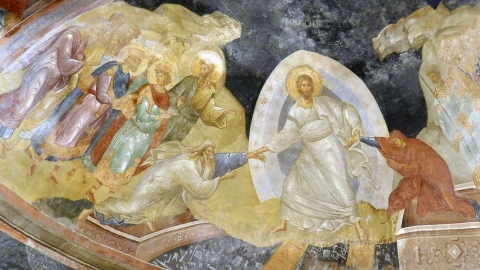Plenary Indulgences on December 31st & January 1st

Giotto - Last Jugement - Cappella Scrovegni (Arena Chapel), Padua, Italy.
At this time of the year, Holy Mother the Church offers the possibility to gain two plenary indulgences. One on December 31st to encourage us to thank God for all the graces received during the year and one on January 1st as She encourages us to invoke the Holy Ghost to assist us at the beginning of the year.
Official Text
A plenary indulgence is granted to the Christian faithful who, in a church or in an oratory, are present in a recitation or solemn chant of:
1° the hymn Veni Creator ... on the first day of the year, imploring divine assistance for the whole of the coming year...
2° the Te Deum hymn, on the last day of the year, in thanksgiving to God for the favors received in the course of the entire year.
(Reference: Enchiridion Indulgentiarum, #26)
Conditions for a Plenary Indulgence
In addition to the indulgenced act or "good work" (recitation or solemn chant of the hymn Veni Creator/Te Deum hymn on the due day) the usual following conditions must be observed for those who want to gain a plenary indulgence:
1. State of grace at least when performing the indulgenced act;
2. Complete detachment from sin, even venial sin;
3. Confession (within 20 days before or after the indulgenced act);
4. Communion (within 20 days before or after the indulgenced act);
5. Prayer for the intentions of the Supreme Pontiff (left to the choice of the faithful, e.g. Our Father & Creed).
A plenary indulgence can be gained only once a day. One sacramental confession suffices for several plenary indulgences, but a separate Holy Communion and a separate prayer for the Holy Father's intentions are required for each plenary indulgence.
(cf: Apostolic Penitentiary, Prot. N. 39/05/I)
What is an Indulgence?
An indulgence is a remission before God of the temporal punishment due to sins whose guilt has already been forgiven, which the faithful Christian who is duly disposed gains under certain prescribed conditions through the action of the Church which, as the minister of redemption, dispenses and applies with authority the treasury of the satisfaction of Christ and the saints. Every well-disposed Catholic may obtain an indulgence through the Church’s help (unless he or she is excommunicated).
The theological foundation of indulgences is the dogma of the communion of saints: there is a possible communication of merits for all those who are united to Jesus by the state of grace; saints in heaven, poor souls in the purgatory and the faithful on earth. All the meritorious actions of Jesus Christ and of the saints make up one and the same treasury of merits from where, the pope and the bishops draw —so to speak— what is needed to remit the temporal punishment due from sin.
St. Alphonsus de Liguori used to say that “in order to become a saint, it is enough to gain as many indulgences as possible! ”
Chant of the Te Deum >
Benedictine Monks of the Abbey of St. Maurice & St. Maur, Clevaux. The Te Deum is attributed to two Fathers and Doctors of the Church, St. Ambrose and St. Augustine and is one the most majestic chants in the Liturgy of the Church.
Chant of the Veni Creator >
As an invocation of the Holy Ghost, the Veni Creator, written by Rabanus Maurus in the 9th century, is sung during liturgical celebrations on the feast of Pentecost. It is also sung at occasions such as the entrance of Cardinals to the Sistine Chapel when they elect a new pope, as well as at the consecration of bishops, the ordination of priests, when celebrating the sacrament of Confirmation, the dedication of churches, the celebration of synods or councils, coronations, the profession of members of religious institutes, and other similar solemn events.





